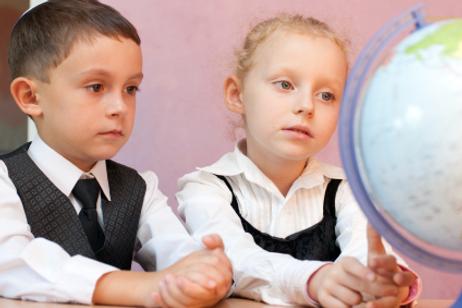While many school districts nationwide are tightening their belts with smaller budgets, others are considering a broader range of charter schools to address the specific needs of families in their areas. One type of charter school that has gained plenty of attention in recent years is Hebrew immersion charter schools, which teach the Hebrew language and culture without bringing religion into the picture. While many school districts have denied such charter applications, others have signed on for Hebrew immersion schools, which are filling quickly in some areas.
Try, Try Again!
In Bergen County, New Jersey, one Hebrew-immersion charter school is hoping the fourth time is the charm as it once again submits its charter application to the state for approval. The school, Shalom Academy, may get its wish in a year when the current state government hopes to expand public school choices. According to a report at NJ.com, this year might be Shalom's best shot at approval.
The Shalom Academy would serve populations in Englewood and Teaneck, which already host a charter school. It is estimated that the two current schools would have to reduce their budgets by nearly $3 million to create the money needed to set up and run Shalom Academy.
This video documents how, with their use of taxpayer dollars for Hebrew education, the nation's Hebrew-language charter schools are becoming an increasingly popular choice for Jewish parents.
There is also concern that a Hebrew immersioncharter school would take students away from the many Jewish day schools in the area. Some wonder if the separation-of-church-and-state lines are becoming blurred with the addition of a Hebrew immersion public school. However, Shalom advocates have repeatedly stated that Shalom will be "completely secular."
A similar Hebrew-immersion school opened recently in East Brunswick. We will examine it further.
About Hatikvah
Hatikvah International Academy opened in East Brunswick in September of this year. According to the school website, this charter school initially opened up to grades K-2 to expand the student body to grades K-8 by adding a grade each year until the mark is hit. This school already has a waitlist for its K-3 enrollment next year, as parents are tuning into the advantages of smaller class sizes and the incorporation of a second language into the school's curriculum.
This video offers a glimpse of Hatikvah International Academy.
The school currently boasts a student/teacher ratio of about 17:2. Fundraising supplements to the public money received should be able to maintain those ratios as the school grows. The diversity of the student population is another draw to Hatikvah, as parents are finding an alternative to some of the predominantly white schools in the area.
Principal Naomi Drewitz told NJ.com that they have fought the same stereotypes plaguing Shalom Academy. Drewitz said, "We're always trying to dispel the misconception that we're a Jewish school. But it's hard to convince people. We have a very, very diverse population." The school currently operates in a Presbyterian church near the district elementary school. If it continues on the successful path it has begun, it will begin looking for a more permanent location in the near future.
Moving up to High School
With more focus on Hebrew-immersion schools at the elementary and middle school levels, a proposed charter high school hopes to capitalize on their growing popularity as well. In October, the Tikun Olam Hebrew Language Charter High School applied with the state to serve Highland Park, Edison, and New Brunswick. In addition to the core curriculum required by the state, this high school would offer a partial immersion Hebrew language program.
The school wants to open with 100 students and gradually increase to 200. The school believes that its Hebrew language offering makes it unique for high schools in this New Jersey community. The school hopes to cash in on Governor Chris Christie's interest in expanding school choice throughout the state. However, they are not without their share of opponents.
This video looks at the Hebrew Immersion program at Wise School in Los Angeles.
Edison Interim Superintendent of Schools Ronald Bolandi told the Sentinel he is not opposed to charter schools, but he is concerned about opening one in suburban areas like Edison. Bolandi said, "I feel it is unfair to the taxpayer. You take 100 kids… that means roughly $700,000 of taxpayer money that is paid out [to the charter school annually]."
New Jersey isn't the only state grappling with applications for Hebrew immersion charter schools. Both New York and Florida have opened similar schools in recent years. However, concern over taxpayer money, separation of church and state, and necessity may continue to plague these schools as they seek to find an identity and voice within the public school system.
Questions? Contact us on Facebook. @publicschoolreview












